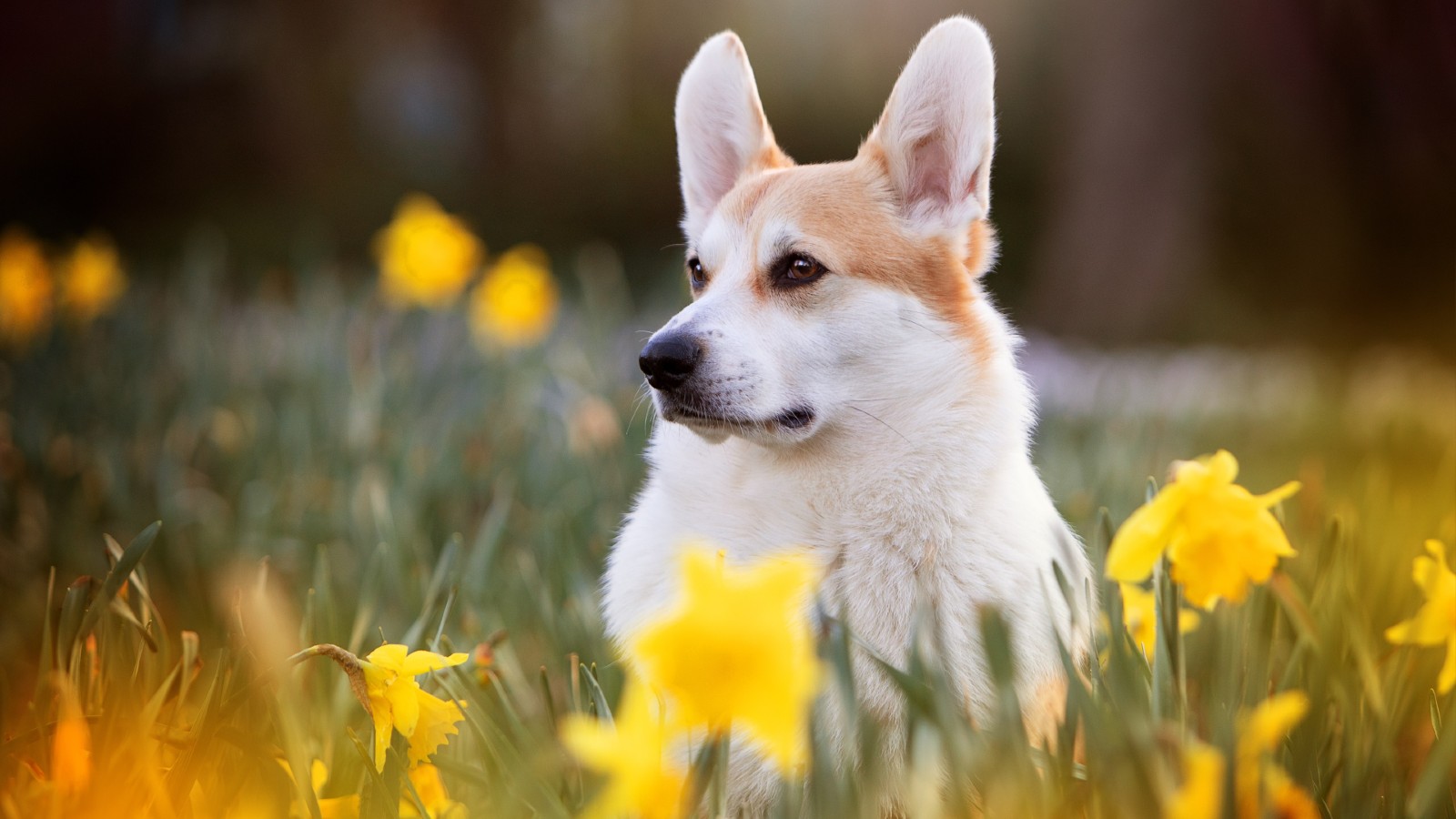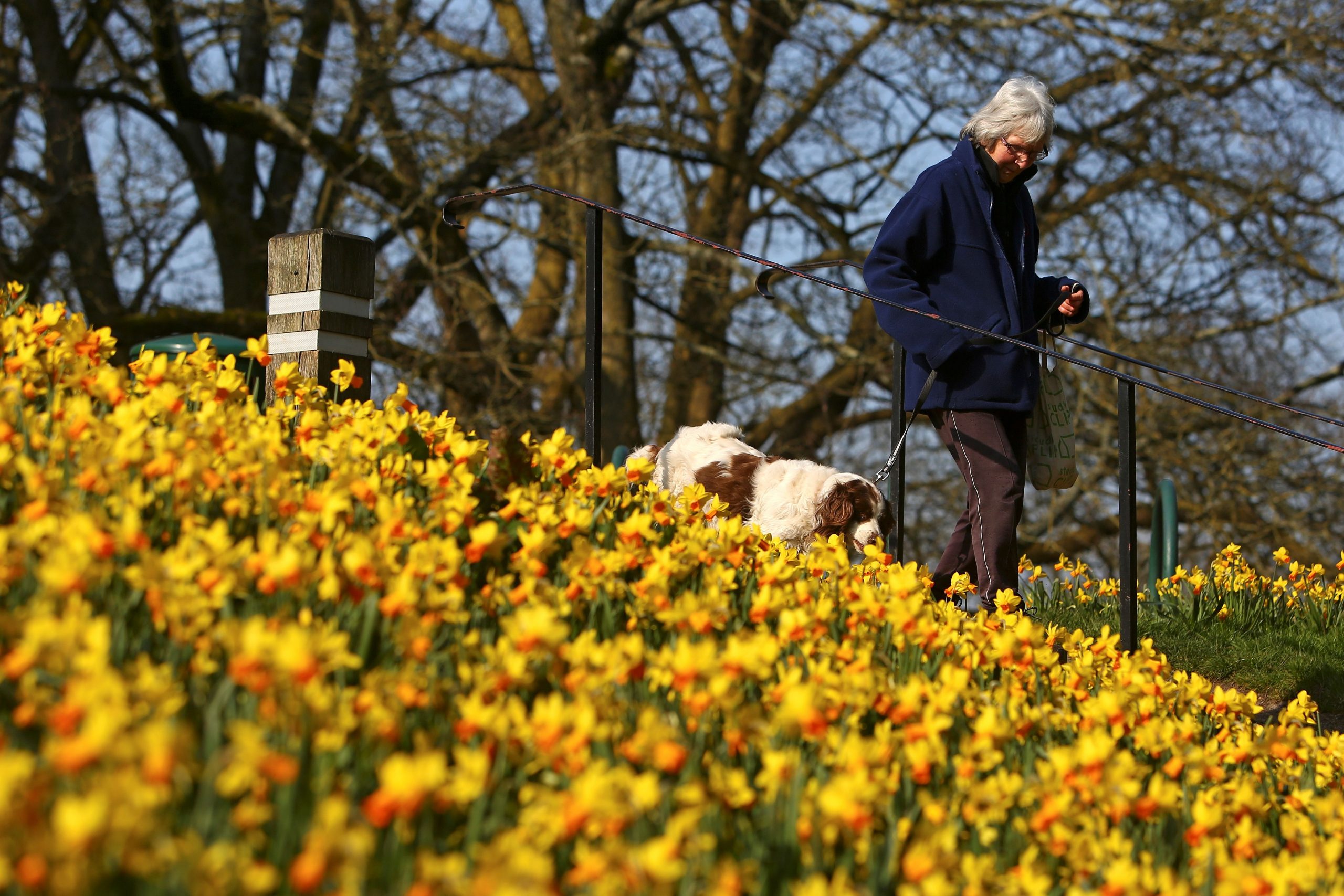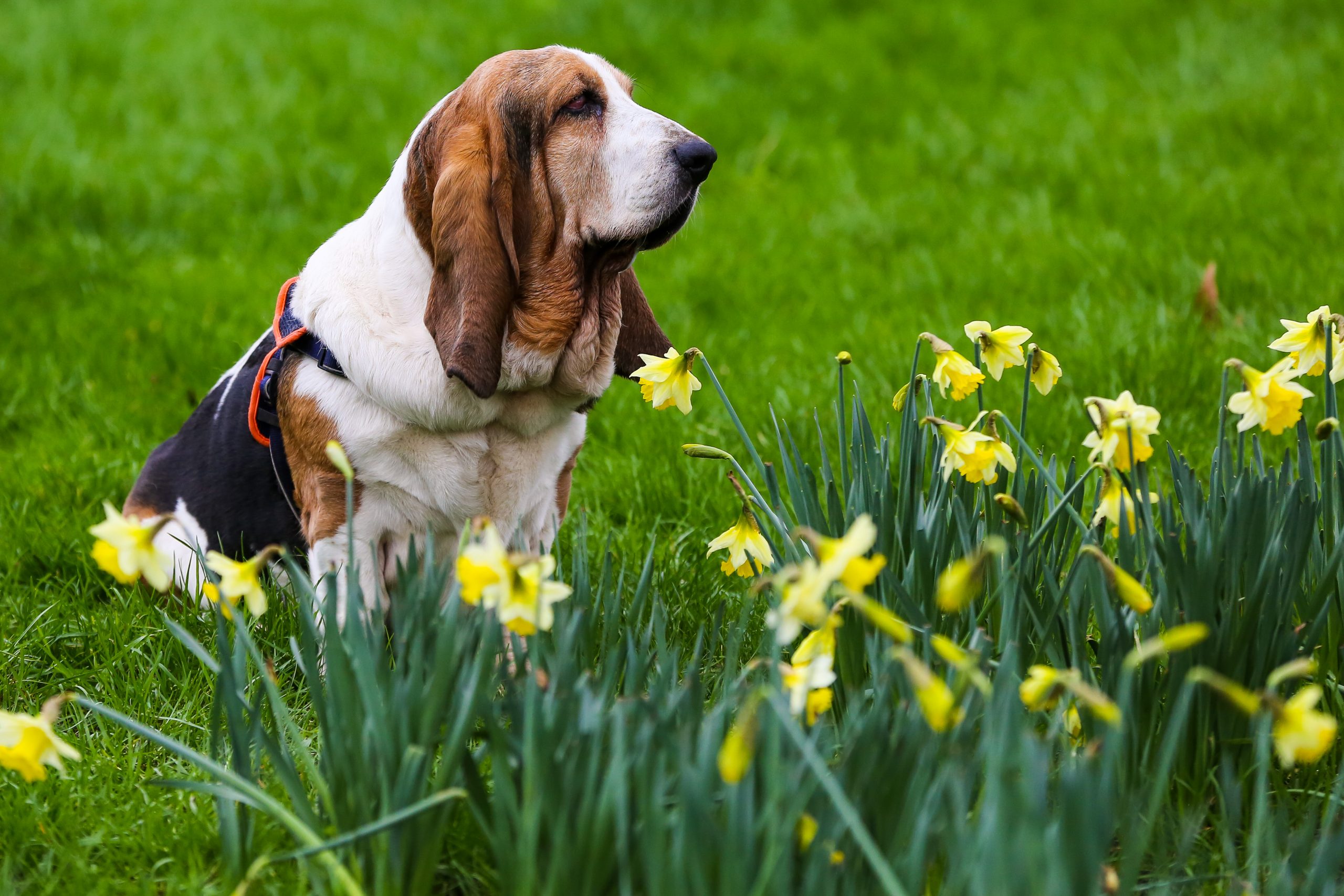Dog owners warned over poisonous danger on walks this spring


Parenting advice, hot topics, best buys and family finance tips delivered straight to your inbox.
You are now subscribed
Your newsletter sign-up was successful
Dog owners have been warned of the danger that poisonous daffodils can pose to their pets on walks this spring.
With so many dogs wandering fields and green open spaces as the weather warms up, it's critical to keep them from nibbling on spring flowers and bulbs, which can be harmful to pooches.
While pup lovers have been warned that you should never walk your four-legged buddy in dog boots on cold or snowy winter days, and not to walk dogs during hot days in the summer, a new warning has been issued a spring time draws closer.
While daffodils are a beautiful spring flower, they are toxic to dogs and can cause vomiting, salivation, and cardiac arrhythmia, among other issues, a dog training expert has stressed.

Pooch pro Joe Nutkin's caution could be useful in identifying toxic spring flowers that may be harmful to your dog, as well as teaching what to do if your dog tries to eat a deadly flower or its bulb.
Joe recommends that owners keep these plants in a secure spot out of reach of their dogs to help keep them safe.
Normally, dogs would avoid eating a plant that they know is harmful to them, especially if the entire plant, or even the majority of it, is poisonous.
Parenting advice, hot topics, best buys and family finance tips delivered straight to your inbox.
"If your dog does manage to eat a plant or flower that is known to be toxic to dogs, call your vets while getting ready to take your dog directly to them.
"Calling your vet while you are on your way, or asking someone else to call them for you, means they can get everything ready for your arrival and help your dog sooner," Joe explains.
Tulips, snowdrops, bluebells, and crocus are also plants that dog owners should be aware of in spring.
Joe adds, "If you are not near your own vet, look up a local vet if you haven’t already located one in advance and let them know you’re on your way."

The terrifying warning comes after pet owners were warned to keep an eye out while walking their dogs on beaches after hundreds of pups were diagnosed with a mystery illness.
Joe, who has collaborated with Canine Cottages, explains that if your dog eats a plant that you suspect is poisonous or toxic, you can call the Veterinary Poisons Information Service on 01202 509 000 and provide information including the plant your dog ate or a description of what it looks like .
The hotline is not free, but it can advise you on whether or not your dog requires immediate medical attention.

Kudzai Chibaduki joined Future as a trainee news writer for Good To, writing about fashion, entertainment, and beauty. She's now a freelance fashion wardrobe stylist and helps direct magazine photoshoots.